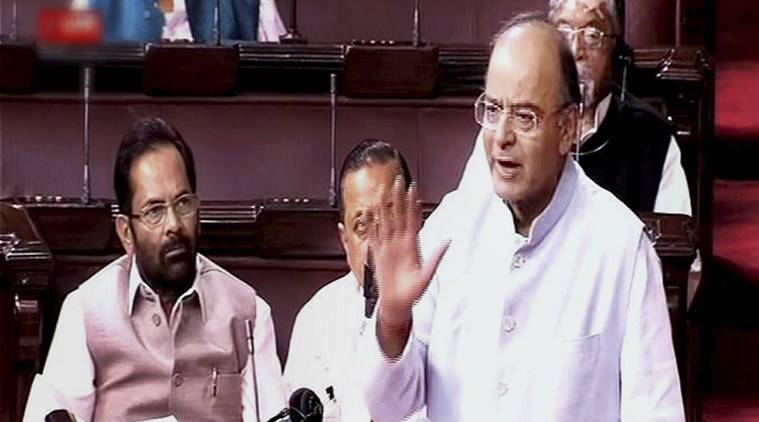THINGS TO KNOW ABOUT FDI

THINGS TO KNOW ABOUT FDI
Hi Bankersdaily Aspirant,
“Try not to become a person of success, but rather try to become a person of value”
I Know Our Aspirants are Future Bankers So,by the above Quote today we are going to increase our value by having a glance on FDI.
FOREIGN DIRECT INVESTMENT IN INDIA:
- Government of India has permitted foreign investment in almost all sectors with a few exceptions, for instance in sectors such as atomic energy, lottery business, and chit funds etc. where FDI is completely prohibited.
- For other sectors, FDI is either 100% permitted or partially permitted.
- In the permitted sectors, subject to sectoral caps, FDI may be via 2 routes:
- Automatic route or
- Government route i.e. where prior approval of Government of India is required.
- Equity inflow of an below 0.77 billion – Minister of Finance (in charge of FIPB)
- Equity inflow of more than 0.77 billion – Cabinet Committee on Economic Affairs (CCEA)
- Cases referred to CCEA by FIPB – CCEA
REASON TO INVEST IN INDIA:
- In recent years, India has emerged as one of the most attractive destinations not only for investments but also for doing business, evident by its significant jump by 12 places in Ease of Doing Business rankings between 2014 and 2015 (Source: Ease of Doing Business, World Bank)
- India accounted for 1.7% of global merchandise exports in 2014, compared to 0.8% in early 2000. Exports have increased at a Compound Annual Growth Rate of 11.6% in FY 2010 to USD 310 billion in FY 2015 (Source: EXIM Bank Catalyzing India’s trade and investment, July 1, 2015; WTO International Trade Statistics 2015)
ENTRY OPTIONS:
Foreign Investors can commence business in India as:
An Indian Company:
- Joint Venture as (i) Private Limited or (ii) Public Limited Company, s.t. Companies Act, 2013
- Wholly owned subsidiary permissible in sectors where 100% FDI is permitted
A Foreign Company:
- Liaison Office to represent the parent company in India
- Branch Office activities such as Export-Import of goods; research, consultancy etc.
- Project Office activities as per contract to execute project
Investing in India
- Registering with RoC, India
- Licenses and Permits:
- Land: Application to respective State Infrastructure Corporation/ DIC/ SIDC/ SSIDC
- Environment: Application to the Secretary, Ministry of Environment and Forests, New Delhi.
- Building: Building Completion Certificate: Application to Town and Country Planning or other local bodies
- Power: Application to State Electricity Distribution Company for sanction of power supply for LT/ HT or Extra High Tension connection as applicable
- Water: Application to SIDC /SIPB or Central Ground Water Commission depending on source
- Fire: Provisional Fire Safety Approval from State Fire and Safety department; final approval by local State authority
- Tax: VAT/ Service Tax/Professional Tax/Central Excise registration
TAXATION OVERVIEW:
Overview of Regulatory Compliances
- Service Tax
- Levied on services
- Monthly/Quarterly and Half yearly reporting as applicable (e.g. to company/society/individual/partnership etc.)
- VAT/CST
- Levied on Sale of Goods
- Tax on turnover; monthly tax and VAT annual return as applicable
- TDS
- Applicable to salary, interest, commission, brokerage, professional fees, royalty, contract payments, etc. wherein tax is deducted by the payer and is remitted to the Government on behalf of the payee. TDS is managed by Central Board of Direct taxes (CBDT)
- Income Tax Filing
- Filing of Income Tax is mandatory for eligible individuals/companies etc. for the applicable assessment year
- Custom
- Levied on all goods imported into India and few goods exported from India
- Excise
- Levied on Excisable Goods manufactured in India
Pros in FDI:
Revenue – The company which invest in India are bringing in revenue which can be utilised to develop and carry forth various projects in infrastructure, education, health care sanitation. ( Ex : Japan invested 2 billion in railways project).
Employment – India has 65% of its population in the age group 20-35 which is the working productive age but majority of them still unemployed. The companies which setup their locations in India will provide employment to the large exploding population which Indigenious players cannot cater to.
Technology – India is not that upfront in technology either, it is still developing. The companies bring with them research opportunities and new technologies from their land which helps India to develop.
Cultural – Folks from various corners of the world come with unique cultures which helps us to delve into their culture, understand them and be more comfortable with everyone. It helps in adjusting people if at all they go to a different land.
Cons in FDI:
- More investment leads to ownership on the company to the concerned foreign entitiy or individual due which its indigenousness comes to an end.
- Loss of a potential idea in name in our own country.
Example :
Alibaba is the biggest shareholders of Paytm holding 40% of total stakes. Further it is planning to increase its stake to 67% making it the owner of the Indian company by investing more money in it.
In this way FDI has two sides.
“Problems are meant to be solved, but unfortunately, a lot of people choose to complain, worry, and cry about them.”
As a Future Banker let us take a Positive thing from FDI and if there is any Negative let us solve together.Use our Comment Box to discuss the grievances on FDI and let us try to solve in Future.





